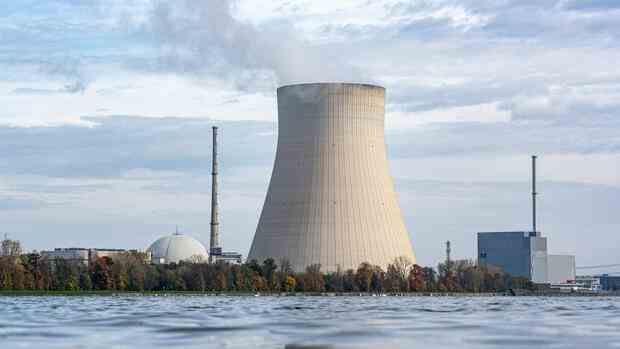If climate protectionists have their way, investments in the development of new fossil energy sources should no longer be made worldwide. Accordingly, the future lies solely with renewable energies, the rapid expansion of which is the answer to the global demand for energy. However, the well-known principle applies here too, according to which one should be careful about what one wishes for.
The global energy demand is still mainly covered by fossil fuels, as the study “bp Statistical Review of World Energy 2022” summarizes. With a share of 31 percent in primary energy consumption, crude oil is the most important energy source worldwide, followed by coal with a share of 27 percent and natural gas with just under 25 percent.
The conversion towards renewable energies not only costs a lot of money, it also requires a considerable amount of energy to produce wind turbines, photovoltaic systems and batteries. Even if one assumes that the demand for primary energy will shrink in the medium term due to efficiency gains through the switch to electricity, there remains a period in which the demand for fossil fuels will continue to grow worldwide.
If the supply does not grow with it, disproportionate price increases are the result. It is already foreseeable that investments in fossil fuels will be insufficient. For years, less and less has been invested in the development of new deposits, also due to the pressure of the climate movement.
Top jobs of the day
Find the best jobs now and
be notified by email.
Not only does this make the conversion to renewable energies more expensive, it also leads to more environmental and climate damage instead of less. The higher the prices, the more the world’s poor have to switch to cheaper and more polluting alternatives.
Why Germany is the main responsible
Coal instead of gas, wood instead of coal. Trees are being cut down in Zimbabwe, India is burning more coal, and Bangladesh and Thailand are turning to diesel to generate electricity because of gas shortages. The result: not only is the climate damaged, but the other important UN development goals such as poverty reduction and education are also missed.
Daniel Stelter is the founder of the discussion forum beyond the obvious, which specializes in strategy and macroeconomics, as well as a management consultant and author. Every Sunday his podcast goes online at www.think-bto.com.
(Photo: Robert Recker/ Berlin)
We have to keep that in mind when it comes to our energy policy. If we continue to refuse to tap domestic natural gas reserves and to use existing, functioning nuclear power plants, we will harm the environment and the poorest at the same time. Our ability and willingness to pay high prices increases energy poverty elsewhere. Climate activist Greta Thunberg declared Germany the “biggest climate sinner” on local television. Here she is wrong, because as an analysis of the “Carbon Brief” shows, among other things, China and the USA are the largest greenhouse gas emitters.
We are becoming the primary culprits differently, not because our emissions are so large, but because we refuse to take advantage of existing carbon-saving opportunities. If all six nuclear power plants had remained online in 2021, five lignite-fired power plants and CO2 emissions of an estimated 70 million tons of CO2 per year could have been saved, which corresponds to almost a third of energy-related emissions and around ten percent of Germany-wide emissions. In contrast to the often demanded speed limit, this is a measure with a clear effect.
We are climate sinners mainly because of political decisions. The German economy, on the other hand, has made significant progress in saving energy and CO2. While CO2 emissions per 1,000 dollars of gross domestic product (GDP) were still 0.25 tons in 2000, the value has fallen to 0.15 tons – despite the phasing out of nuclear energy. If, instead of replacing nuclear energy with renewable energies, we had replaced coal-fired power plants, not only would we be better off when it comes to climate protection, but we would never have become so dependent on Russia.
Instead of changing this, politicians are increasing the pressure on companies and private households in view of the failure to meet self-imposed reduction targets for CO2. Irrespective of the enormous costs – just the energetic renewal of the property portfolio should cost 3000 billion euros according to calculations by the management consultancy EY – bans are imposed and CO2 taxes are increased.
>> Read here: Higher energy efficiency is the key to climate change – A comment
For climate, prosperity and location it would be better to concentrate on the big levers, to use nuclear power plants and fracking for the transition and to break the next steps of the transformation less over the knee. The world’s poorest would thank us.
More: Researchers see no climate neutrality without CO2 removal from the air.
